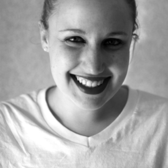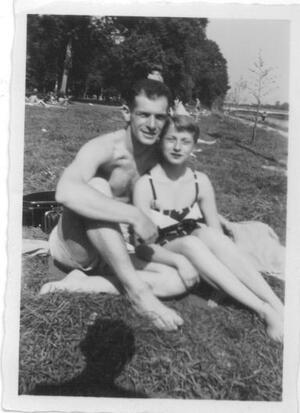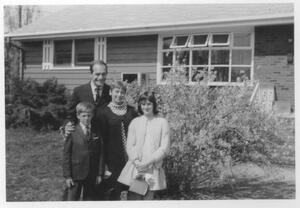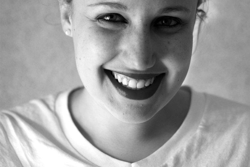Big Plans in Small Spaces
When my grandmother graduated High School in the late 1940s, the American dream for women was to get married and raise children. Wartime propaganda told individuals to reject the communist behavior of their Russian counterparts and contribute to society by creating nuclear families. While women were expected to fill roles once occupied by men who went to war, these were seen as temporary positions, not long-term careers. Women often worked as secretaries or store clerks, jobs that paid little and offered few opportunities for advancement. “You just kind of lived life and it happened. You didn’t make big plans,” Alice says. Alice did, despite those expectations, make big plans. In her high school yearbook, she wrote about her aspirations to become a journalist.
That fall, in her freshmen year at New York University, Alice fell in love. The relationship between her and Marv evolved quickly and the two soon got engaged. When Marv joined the draft for the Korean war and moved to a camp in Indiana, Alice left school to work as a file clerk at Young and Rubicam in New York City. While her priorities had shifted to saving for her future with her soon-to-be husband, her dreams of writing were still on her mind. She asked her supervisors if she might eventually become an advertising writer, only to be told with finality that they had never known a file clerk who had advanced in this way.
And so Alice did what many women of her time did. She married her husband before he relocated to his new base in Germany and landed a temporary job at Eastern Airlines, with hopes of getting a discounted plane ticket. When a flight was still too expensive, Alice took the SS Rotterdam to Germany with a friend whose husband was also stationed there. In their Dillon apartment, Alice assumed the role of the perfect military housewife. She cooked, learning how to make ravioli from scratch from her cleaning lady, and knitted often. Her parents would send her letters and lemon meringue pie mix, which made her a “heroine among [her] German friends,” who had never tried such a delicacy.
After 20 months, when Marv was to be discharged, Alice went home early to make arrangements. She re-applied to work at Eastern Airlines, where she stood all day in beige pumps, a green gabardine suit, and a white collar shirt, selling tickets to customers. Marv returned home and began working for his father as a diamond setter. Soon, Alice became pregnant with her first child, a girl named Karrie, and she left her job to care for her new baby. Two years later, her second child, Eric was born. At this point, Alice had settled into a lifestyle familiar to many women after the war. She was a wife and a mother, and that seemed to be enough. However, soon, an opportunity rekindled a flame within her.
The local high school was offering its first adult class; a writing seminar. “I would love to take that class,” she thought, but worried it might be too challenging with young children. Marv, however, was supportive, and she was able to go one night a week. There, she met three women; Harriet, Barbara, and Janet. They all had children and jobs in the journalism field. Harriet was a reporter for a local weekly paper, and she helped Alice got a position as a nightside reporter. When Marv, bored by diamond setting, decided to study law, the family was on a tight budget and Alice considered other opportunities for income. By this time, her friend Harriet had gotten a job at The Bergen Evening Record, a well-known newspaper. She encouraged Alice to apply. Alice’s lack of a Bachelor’s degree and the fact that she had young children shook her confidence. However, her friend assured her that her experience at the local paper would make her a strong candidate. Indeed, she was. She became a reporter at New Jersey’s largest evening newspaper.
By this point, her children were in school. Alice woke up early to make them breakfast and pack them lunch before starting her long day of covering features. They would stay with a neighbor until Marv came home from law school each evening. Perhaps due to the nature of the times, she wondered if this was selfish of her, to leave her kids with someone else while she worked long hours. “You’d have to ask my kids,” she says, when I ask her how it affected the family. Maybe they missed her, but something tells me they’re proud of their mother’s decision. Not only was Alice challenging herself and fulfilling a lifelong dream, but she became a key financial contributor to her marriage. Her job paid better than most, especially those available to women.
Not only did Alice excel in her new job, but she became a role model for female journalists to come. Just as Harriet helped make it possible for women like Alice to write, Alice did the same for future generations. It wasn’t always easy: society wasn’t quite ready for women to hold such important positions, and Alice often had to stand up for herself and others. Once, upon being yelled at by her boss, she asked sternly, “Is it part of my job for you to yell at me like like this?” He promptly told her to “stop being so sensitive.” She said, “No, I’m not sensitive. I asked if it was part of my job for you to yell at me.” Eventually, the man backed down and apologized, and Alice made her point. Later, upon seeing a female coworker cry when a male superior yelled at her, Alice told her, “Go to the bathroom. Don’t give him the satisfaction of seeing you cry.” Alice also set a precedent for women who wanted to be both mothers and professionals. Another female coworker wanted to return to work at The Record after having a baby. The higher-ups didn’t like this, claiming that a woman couldn’t both take care of a young child and write good stories. The woman cited Alice as having done exactly that, and was able to get her job back.
Alice didn’t just let life happen to her. With the support of her family and strong, female predecessors, she educated herself and built a career she cared passionately about. “I’ve loved every job I’ve ever had,” she says. “Everything was a learning experience.” Now 83, Alice still expands her mind on a daily basis. She teaches adult classes on current events at a local school. She travels often to learn about the world around her. She engages her children and grandchildren in thoughtful conversation. In our recent interview, she tells me she’s proud of me for going back to school for writing. “It’s the right choice,” she says. “It’s important to do what we love.” “I guess I’m following in your footsteps,” I say, realizing how true this is after hearing her story. Even nowadays, when the narrow opportunities available to women have widened considerably, I need to hear this. It will always be a challenge to make our lives belong to us. But if my grandmother Alice could do it back then, we can surely do it now.








